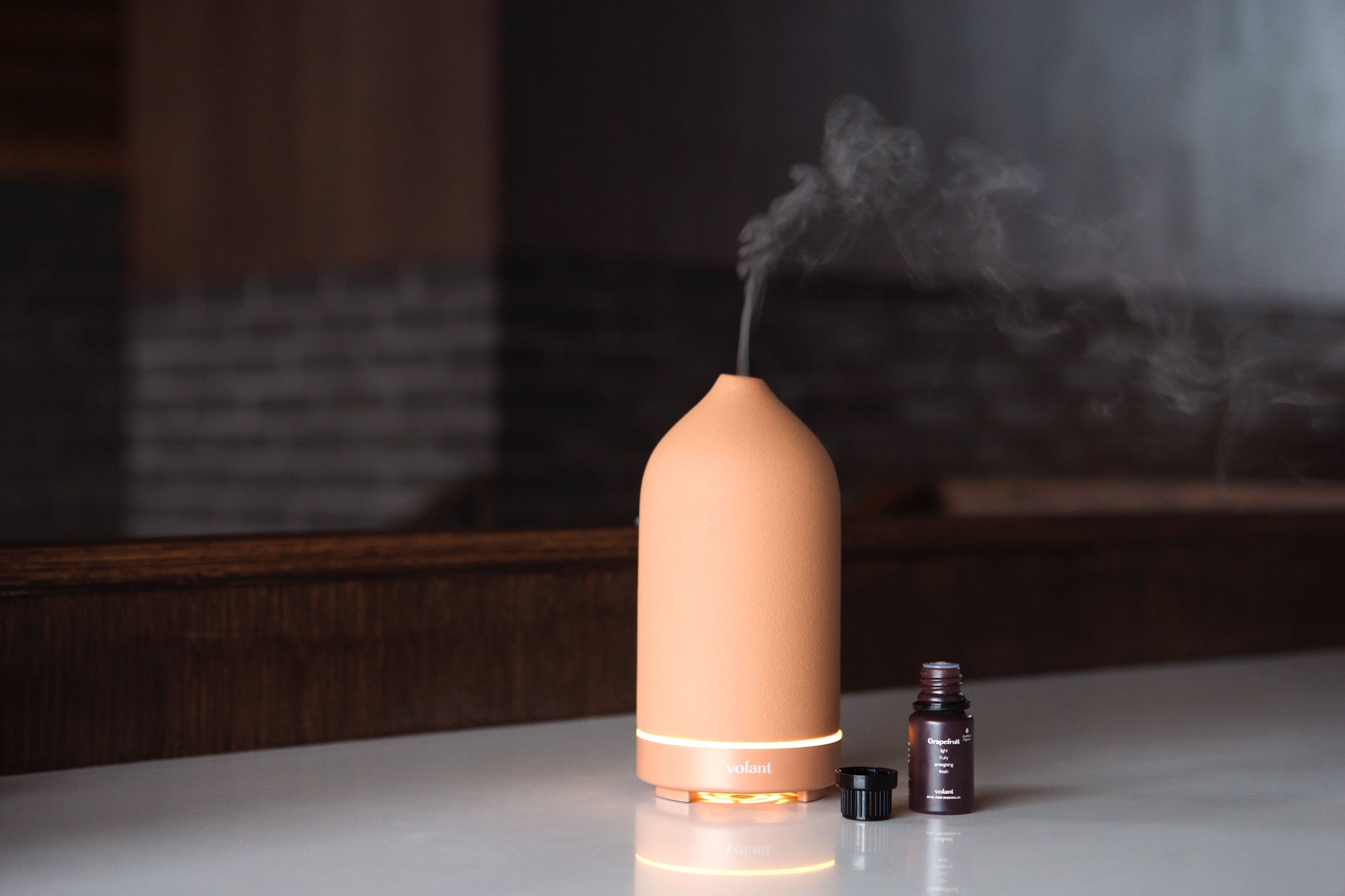What is cinnamon essential oil?

Cinnamon essential oil comes from a tree that is commonly known by two botanical names: Cinnamomum zeylanicum and Cinnamomum verum – both of which refer to the same tree. The thing about cinnamon is, what you smell is what you get – in a good way.
That sweet spicy scent will make you feel like it’s the festive season whenever you use it, but because it is such a powerful oil, it is best to use it sparingly. There are a multitude of benefits that cinnamon essential oil has to offer, from using it in a beauty routine to reducing pain and supporting your health. Let’s unpack this further so that you can get the full experience and truly appreciate the benefits of cinnamon essential oil.
Cinnamon essential oil - quick facts
🤎 Latin name: Cinnamomum zeylanicum / Cinnamomum verum
🤎 Also known as: True cinnamon, Ceylon cinnamon
🤎 Countries of origin: Sri Lanka, the Malabar Coast of India
🤎 Scent note: Middle
🤎 Popular uses: Aches and pains, Skin irritation
How is cinnamon essential oil made?

Cinnamon comes from the plant species named Laurus Cinnamomum. It is considered one of the longest-existing spices in history and was highly valued by Egyptians. It has also been used by Chinese and Ayurvedic medicine practitioners to treat a series of ailments whether it was in the form of an extract, liquid, tea or herb.
The oil itself comes from the leaf or the bark of the cinnamon tree. When used as an oil, it is advised to get the oil that is from the leaf rather than the bark of the tree as it is less irritating to the skin and lungs.
Through a steam distillation process, steam is passed through the plant material which is vaporized. Then it is condensed, separated and the oil can then be collected.
Benefits of cinnamon essential oil

Cinnamon essential oil has a wide range of benefits, which is why it is one of the most popular essential oils in the world.
Some of the main benefits of cinnamon oil include:
- 🤎 Antimicrobial properties
- 🤎 Cold relief
- 🤎 Food flavoring
- 🤎 Skin care and hair
- 🤎 Plumping lips
- 🤎 Mood enhancer
- 🤎 Blood sugar improvement
- 🤎 Pain relief
Let's look at each of these benefits of cinnamon oil in more detail.
Antimicrobial properties of cinnamon essential oil
The oil has been proven to be highly antibacterial and antifungal, making it a splendid oil in treating any type of fungal issues such as athlete’s foot or a nail infection.
There have been studies to show that cinnamon essential oil can fight off superbugs, so you might want to add some to your cleaning products to ward off unwanted bacteria and prevent mold and mildew.
Cold relief with cinnamon essential oil

The scent of cinnamon essential oil can help ease congestion in the nose and other cold symptoms. The aroma and the antibacterial and antiviral properties in the oil fight the infection and are helpful in opening the throat and nostrils. It may even be helpful for other respiratory issues such as asthma and bronchitis, as well as pesky headaches that can accompany colds.
Food flavoring with cinnamon essential oil

Cinnamon essential oil and food-grade cinnamon oil are basically the same thing. However, if you choose to ingest cinnamon essential oil, do so sparingly and only with a high-quality, organic, pure cinnamon oil. You will find the ingredient in common products like sugar-free gum, tea, toothpaste and commercially baked goods. Cinnamon roll anyone?
Cinnamon oil for skin and hair

Cinnamon oil for skin can be effective in soothing skin irritation and inflammation due to its anti-inflammatory properties. It can also enhance wound healing, provide antioxidants to your skin and support the growth of healthy skin.
Add some oil to your skincare routine by making a blend with a safe carrier oil or adding it to your skincare products. You can also use it for rashes, acne and foot or nail fungus.
If you are looking for a natural hair treatment, cinnamon essential oil might be your new go-to. It is said that the oil can boost healthy hair as well as promote hair growth due to its warming effect which boosts circulation. It also helps maintain a healthy scalp, reducing scalp fungus.





